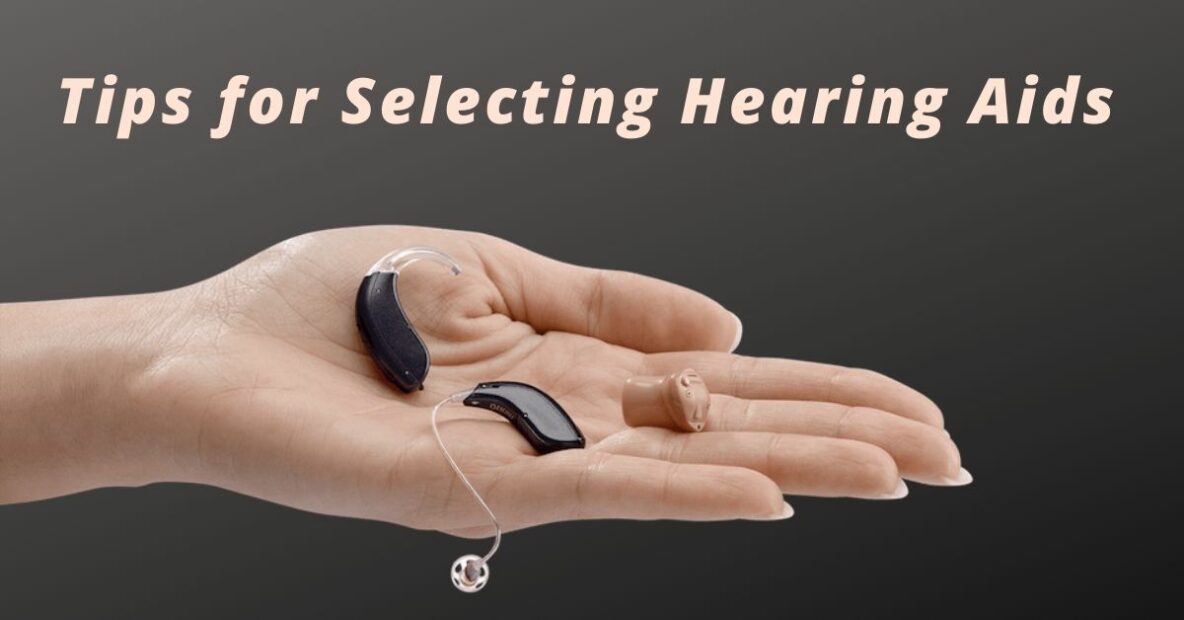As it depends on many factors, including your degree of hearing loss, lifestyle, and budget, choosing the right hearing aid can be a tricky process.
There are so many options and considerations to consider. It is helpful to think about the following questions and discuss your answers with a hearing specialist to decide precisely what you need from a hearing aid.
What sort of hearing loss are you dealing with?
Everyone hears differently, so it’s essential to look for a hearing aid that will address your unique needs. When you work with a hearing professional, they will identify the strengths and weaknesses of your hearing and recommend a hearing aid that suits you perfectly.
It is also essential to keep in mind your particular hearing loss, especially when considering the number of available channels in a hearing aid. Hearing aids have recently completed a shift from analog to digital. This has made signal processing more sophisticated. A provider may change the hearing aids to boost the lower frequency sounds, or vice versa, depending on the patient’s particular hearing loss profile.
This is terrific news, especially for those with issues in particular frequencies, as problem areas can now be amplified more further than others. So wireless hearing aids have settings which allow for tweaks of several channels, like tuning an equalizer on a stereo. Current hearing aids have from about four channels up to 24 or more channels available.
This doesn’t mean that everybody would benefit from more channels, however. A person with a hearing loss that is the same across all frequencies will do better with a standard hearing aid with fewer channels because they need equal amplification across the entire hearing spectrum. On the flip side, someone with hearing loss that is normal in lower pitches and much worse in higher ranges needs a hearing aid with more channels to more accurately boost where amplification is required.
What is the sound environment like at work?
Your work-life also plays a significant part in assessing the needs of the hearing aid. Musicians need to hear high notes and harmonies, for example, whereas people working in a noisy setting will benefit from a hearing aid that decreases background noise.
What kind of activities are you involved in?
Lifestyle is one of the most significant single factors to consider when buying a hearing aid. Here are some questions to consider:
- Do you watch TV a lot?
- Are you a competitive swimmer and hiker?
- Do you chat over the phone regularly?
- Do you visit restaurants or bars often?
Consider the activities you most often engage to help you and your hearing specialist recognize what you need to hear, where you need to listen to it, and how much wear and tear your hearing aid will have to handle.
How to choose the right hearing aid
Deciding on a hearing aid type is the first step to selecting a hearing aid. Such choices will vary according to the extent of your hearing loss and what form of hearing loss you have.
Once a preferred type has been chosen, you can move on to features. There may be a wide range of features on offer fingertips, but if you don’t need them, there’s no point wasting money on them. Additional spending on a hearing aid with Bluetooth integration, for example, might be unnecessary for an elderly wearer who only needs a basic hearing aid.
Find the right hearing aid provider
During the entire process, having a reliable hearing care provider is especially important during the whole process because it will provide advice and expertise to guide your decisions.
However, a hearing care specialist does give more than just advice. They will explain the features of hearing aids, show you how other models work, and even define your hearing goals. They will also assist with fitting the hearing aid, a crucial step in the hearing aid process.
If you are looking for a right provider in San Mateo or San Carlos, look no further. We can help you get on the road to better hearing. Contact us today for a consultation.










